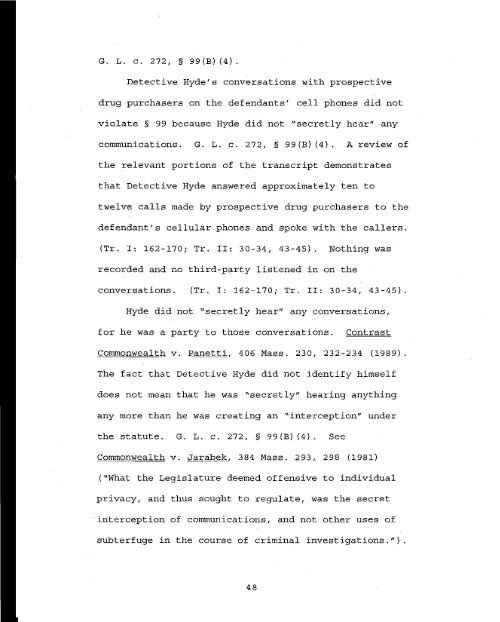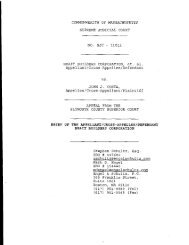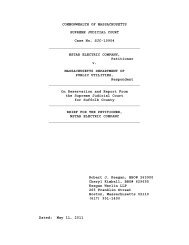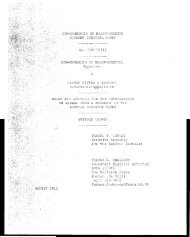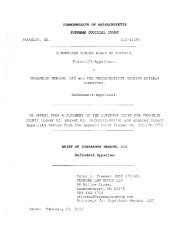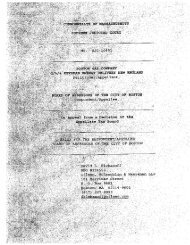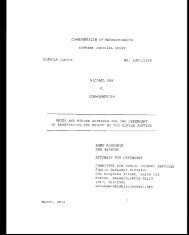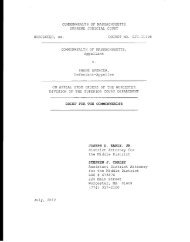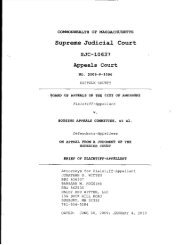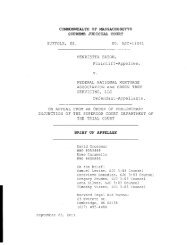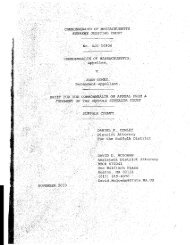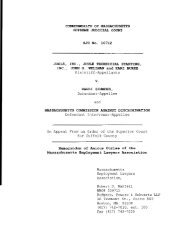463 Mass. 353 - Appellee Commonwealth Brief - Mass Cases
463 Mass. 353 - Appellee Commonwealth Brief - Mass Cases
463 Mass. 353 - Appellee Commonwealth Brief - Mass Cases
You also want an ePaper? Increase the reach of your titles
YUMPU automatically turns print PDFs into web optimized ePapers that Google loves.
G. L. c. 272, § 99(B) (4).<br />
Detective Hyde's conversations with prospective<br />
drug purchasers on the defendants' cell phones did not<br />
violate § 99 because Hyde did not "secretly hear" any<br />
communications. G. L. c. 272, § 99(B) (4). A review of<br />
the relevant portions of the transcript demonstrates<br />
that Detective Hyde answered approximately ten to<br />
twelve calls made by prospective drug purchasers to the<br />
defendant's cellular'phones and spoke with the callers.<br />
(Tr. I: 162-170; Tr. II: 30-34, 43-45). Nothing was<br />
recorded and no third-party listened in on the<br />
conversations. (Tr. I: 162-170; Tr. II: 30-34, 43-45) .<br />
Hyde did not "secretly hear" any conversations,<br />
for he was a party to those conversations. Contrast<br />
<strong>Commonwealth</strong> v. Panetti, 406 <strong>Mass</strong>. 230, 232-234 (1989).<br />
The fact that Detective Hyde did not identify himself<br />
does not mean that he was "secretly" hearing anything<br />
any more than he was creating an "interception" under<br />
the statute. G. L. c. 272, § 99 (B) (4). See<br />
<strong>Commonwealth</strong> v. Jarabek, 384 <strong>Mass</strong>. 293, 298 (1981)<br />
("What the Legislature deemed offensive to individual<br />
privacy, and thus sought to regulate, was the secret<br />
interception of communications, and not other uses of<br />
subterfuge in the course of criminal investigations.").<br />
48


